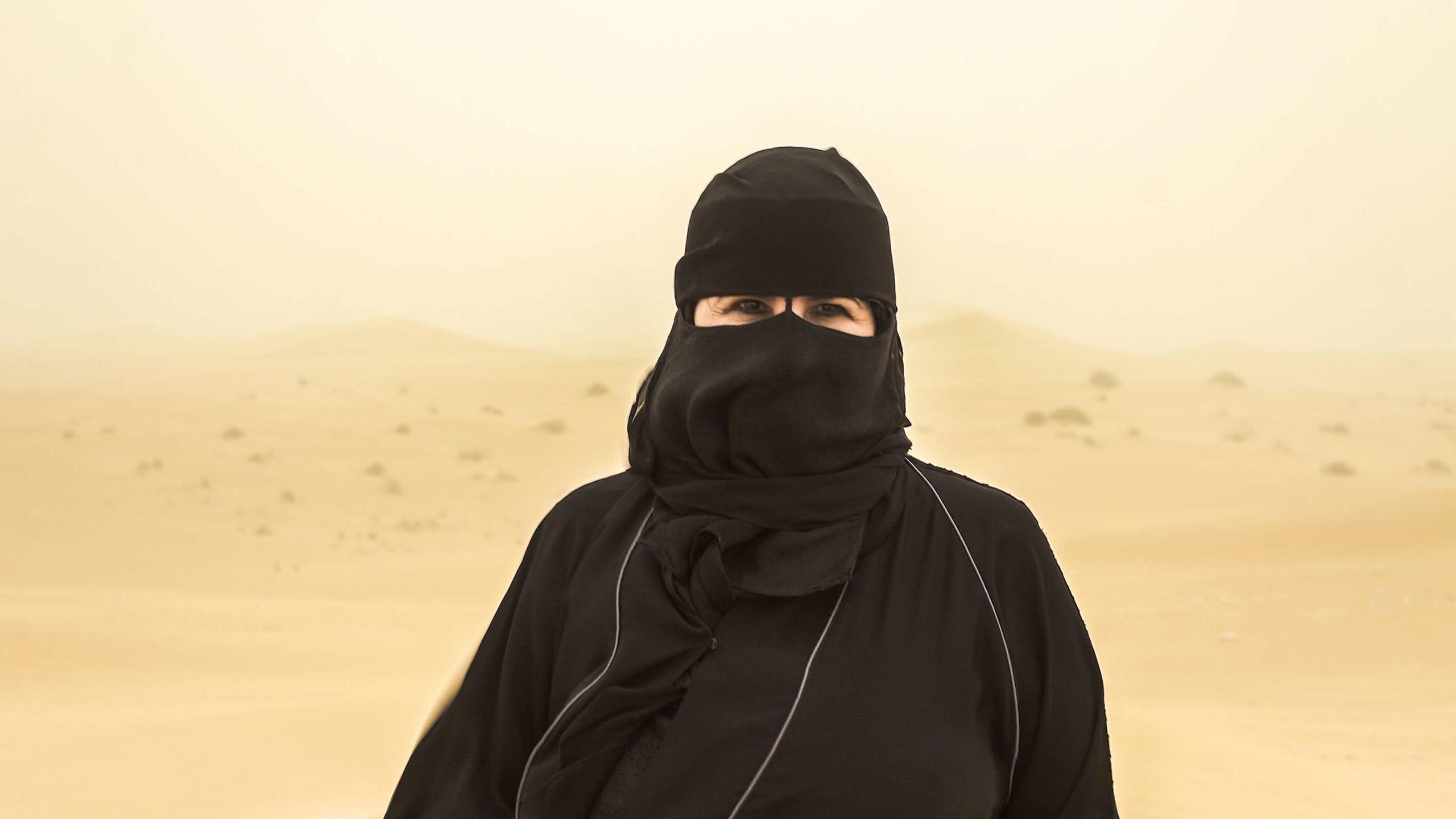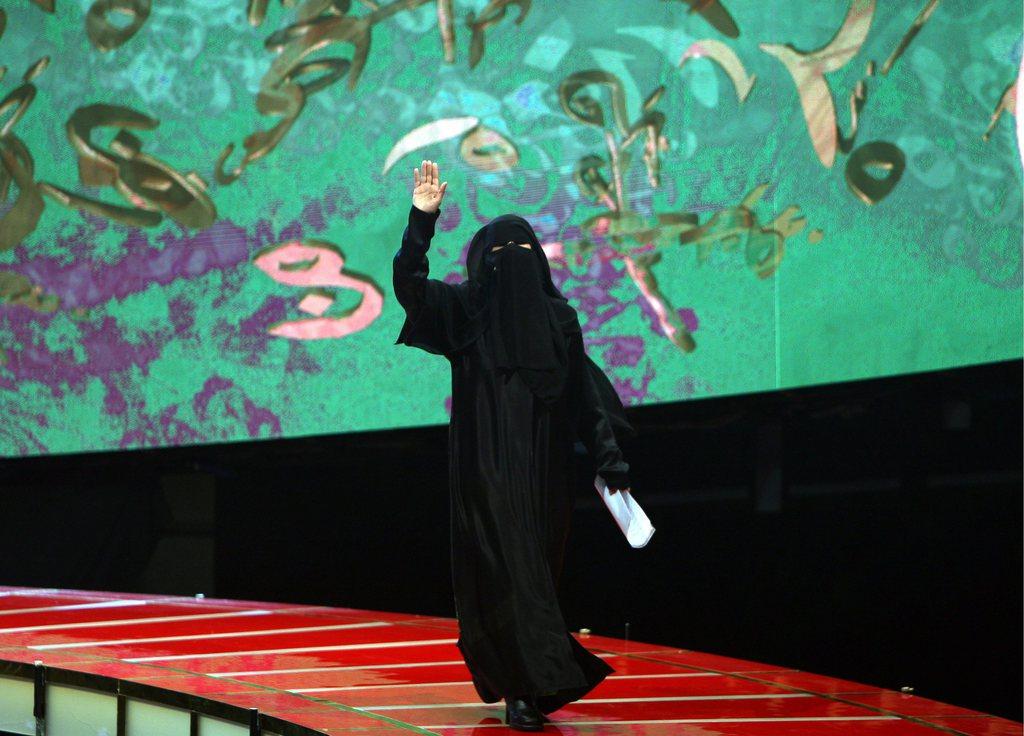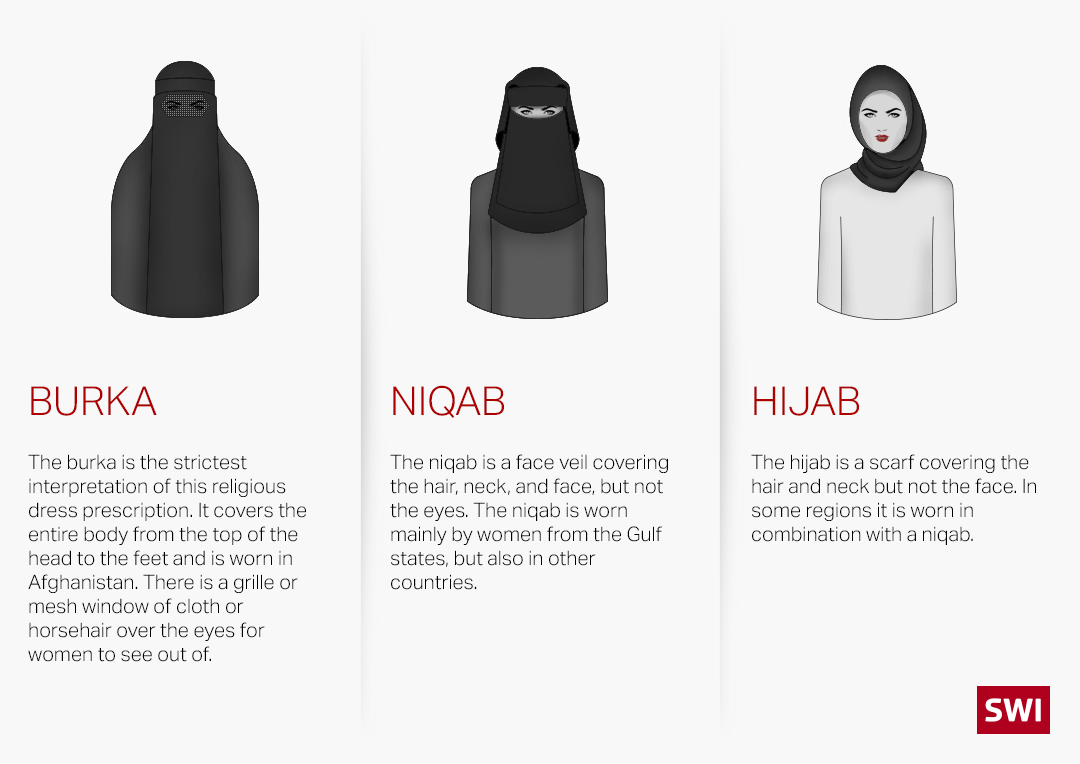
Swiss burka ban challenged at Locarno Festival

The screening of a documentary film in Locarno about a Saudi poetess criticising patriarchal Arab society became embroiled in polemics when the woman featured in the film, The Poetess, covered her face with a veil on stage after the showing.
Hissa Hilal walked onto the stage without any facial covering but eventually donned the niqab to avoid being photographed.
The gesture prompted heckling from one of the main promoters of the ‘burka’ ban in force in this part of Switzerland.
“The lady may not know that in Ticino it’s forbidden to hide your face in public,” said Giorgio Ghirighelli, who was sitting in the audience. His comment was met with derision from other members of the public.
Hilal answered that she would be in danger if pictures of her face were distributed. “When I leave here, I walk around without a veil,” she added.
Critical poems
The film tells Hilal’s storyExternal link of taking part in the Abu Dhabi television show, ‘Million’s Poet’, the Arab world’s biggest poetry competition, which is dominated by men. In her poems, she criticises patriarchal Arab society, and in front of millions of viewers, she condemned the extreme fatwas of an arch conservative Saudi cleric.

Since then, she has received death threats at home in Saudi Arabia. Even if she opposes the imposition of the niqab, covering her face has become a form of protection.
She told Swiss public radio, RSI, that she respects the ban on face coverings that came into force in canton Ticino a year ago.
“I read a lot of history books and fully understand the fear of losing what was achieved with the French Revolution and the liberties that women have won,” Hilal said.
She added, however, that one must distinguish between women who wear a veil to challenge the local laws of the country and those who have always worn it because it’s part of their culture and who would feel lost without it.
The president of the film festival, Marco Solari, told swissinfo.ch that Hilal was informed of the ban and the fact that no exceptions would be made. However, he added that “every law should be applied intelligently taking into account the peculiarities of the given situation. In the case of Hissa Hilal, confronted by journalists and photographers, she had the instinct to protect her face.
“It was a defensive mechanism taken by a person who has received death threats. That’s something you don’t forget,” Solari said.


In compliance with the JTI standards
More: SWI swissinfo.ch certified by the Journalism Trust Initiative


























You can find an overview of ongoing debates with our journalists here . Please join us!
If you want to start a conversation about a topic raised in this article or want to report factual errors, email us at english@swissinfo.ch.